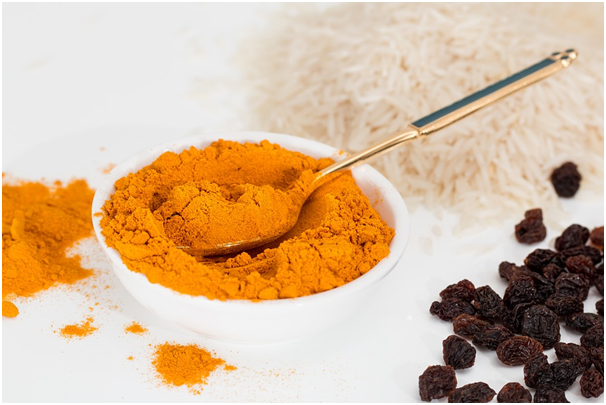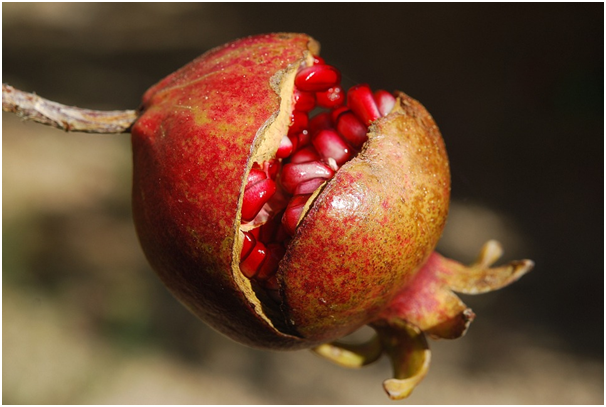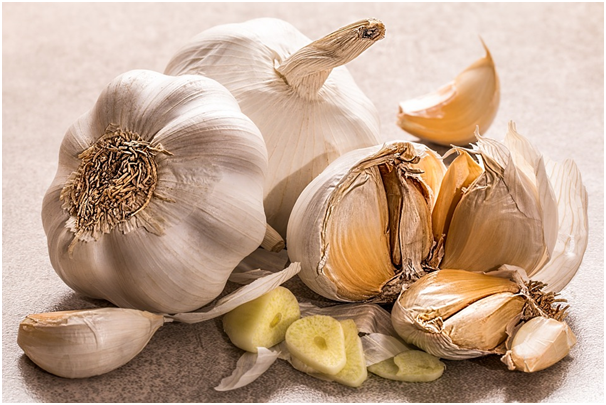
Foods that are considered healthy, like brown rice and almond milk, are fairly expensive or take time to prepare. As a result, we end up resorting to ready-made foods that are often unhealthy and low on nutrients.
Not only does this adversely affect our physical health, but it also has an enormous impact on our emotional and mental health too.
It is important to turn to dietary techniques and foods that focus on overall health and wellbeing, rather than isolated issues of weight loss and obesity. One such concept is Ayurveda.
Ayurveda suggests the use of natural and unprocessed ingredients in making dishes, thus healthier.
Take a look at some superfoods that you’ll find in every Ayurveda kitchen today –
1) Ginger
This flavourful root is a staple of most Indian, Chinese, and Korean cooking. Besides adding a flavoury layer to food, ginger is highly nutritious.
Filled with antioxidants and minerals like copper, magnesium, potassium, and manganese, ginger packs a punch even in a small serving.

It features prominently in both Ayurveda food and medicine, because of its anti-inflammatory and anti-nausea properties. Pregnant women are often advised to have ginger tea for nausea and lower back pain.
Ginger is also recommended to people suffering from joint pain since it relieves inflammation. Ayurveda has already recognized it for its cold-busting properties.
It is filled with Vitamin C, which helps to strengthen the immunity system and fight off diseases like the common cold. Besides chewing raw ginger before meals, you can grind it into stews and curries too.
2) Turmeric
Centuries before the western world recognized the benefits of turmeric in preventing and managing everything from Alzheimer’s to cancer, Ayurvedic doctors had discovered the benefits of this yellow spice.
Most benefits of turmeric lie in one of its constituent compounds, called curcumin. This compound has anti-inflammatory, anti-oxidizing properties that enhance brain & cognitive functions.

In Ayurveda, turmeric is said to balance Vata, Pitta, Kapha—the Ayurvedic elements of human composition, which bring about a harmonious union of our mind and body.
It is widely recommended as an antibiotic and digestive medicine. To maximize the benefits of turmeric, ingest it with black pepper. It contains Piperine, which helps in the absorption of curcumin in turmeric.
3) Basil/Tulsi
Holy Basil (which is different from the dried basil used in Italian cooking) has long been revered for its properties in Ayurvedic medicine. This herb, which is also called ‘Tulsi’, is a powerful antibiotic and antioxidant.
This little herb is also high in Vitamin A and C, which makes it ideal for strengthening immunity.

Ayurvedic practitioners often recommended it as a natural and effective tonic for common cold and bronchitis.
Adding holy basil to food results in improved metabolism and physical endurance. Merely boiling the herb in your green tea will make it flavoury and nutrient-rich.
Basil plant is available in most Indian households. For those who don’t keep it, putting together a plant garden at home isn’t difficult either these days.
4) Honey
Ancient cultures across the world have used honey for its medicinal and nutritional properties—so much so that studies find that honey was actually applied to open wounds to prevent infection and heal them.
This sweet amber liquid is chock full of beneficial minerals. It contains iron, calcium, phosphate, sodium chloride, potassium, and magnesium.
This superfood is effective weight-loss property. Mixing a tablespoon of honey and lemon in a glass of warm water and drinking it in the mornings is a great way of accelerating your metabolism and losing weight.

Its sweetness means that you can easily use it as a replacement for sugar in most food items.
In addition, honey can also be used to heal burns, control hypertension, relieve stomach ulcers, heal common cold, and even prevent acid reflux.
5) Pomegranate
One of the healthiest fruits around, pomegranate has been consumed by Indians for centuries.
The fruit is an indispensable part of Ayurvedic diet and medicine because it is rich in nutrients and vitamins, which makes for strong bones and blood circulation.
Pomegranate is also very fibrous, which makes it good for improving digestion. The fruit can also help prevent prostate cancer from developing by increasing antigens safeguarding against it.

Pomegranate is highly recommended to those suffering from joint inflammation and arthritis. Its anti-inflammatory properties help soothe muscle and joint pain.
Have a glass of pomegranate juice for mild anemia, hypertension, and improved digestion. You can grind the kernels of the fruit for juice, or add it into a fruit salad.
6) Cinnamon
Although cinnamon is primarily used in its powdered bark form as a flavoring spice, several parts of this medicinal plant contain essential vitamins and antioxidants.
Cinnamon leaves, for example, contain eugenol, which has anti-nausea properties. Ayurvedic medics recommend boiling the leaves in tea to surface its antibacterial effect.

The powdered bark itself is high in Vitamin A, K, B, and C. It has minerals like iron, potassium, and magnesium.
Compounds in cinnamon are also known to lower heart disease and protect against HIV as per some journals.
In Ayurveda, a teaspoon of cinnamon daily is recommended for battling pain caused by arthritis.
7) Garlic
The pungent-smelling garlic is considered a great food enhancer. Its true potency lies in its powerful compounds.
Allicin, which gives garlic its pungent odor, has actually been found to alleviate the risks of bone and joint disease in menopausal women.
Another constituent compound, diallyl trisulfide, has been found to reduce the risk of heart disease. Ayurvedic and other ancient medics have long seen its benefits, which is why garlic is recommended for everything from Erectile Dysfunction in men to an antibiotic for open wounds.

If you are suffering from tooth decay and gum diseases, include garlic in food preparation. Not only oral problems would subside but also phobia associated with dental treatment. Allicin brings down anxiety and stress levels too.
Garlic is an excellent source of Vitamin C and Vitamin B6. It also contains selenium and calcium, which is rarely found in plant-based foods.
Final Words
Today pharmaceutical companies propagate pills and tablets targeting everything from fatigue to digestive health, but it is important to understand if these are really safe in the long run.
These might be effective in certain conditions where food availability is restricted due to geographical reasons, issues like habit formation, and high cost can turn expensive.















